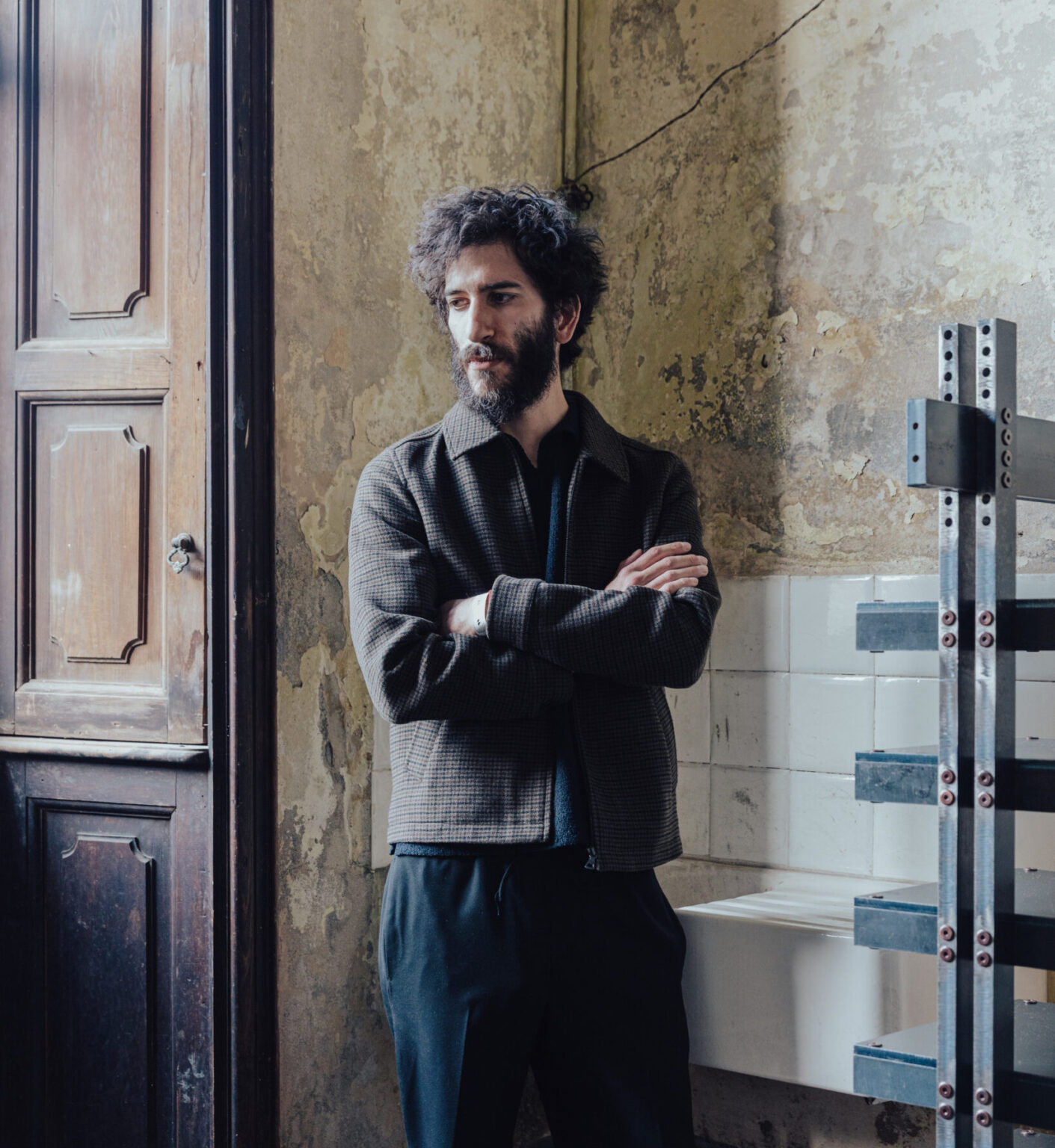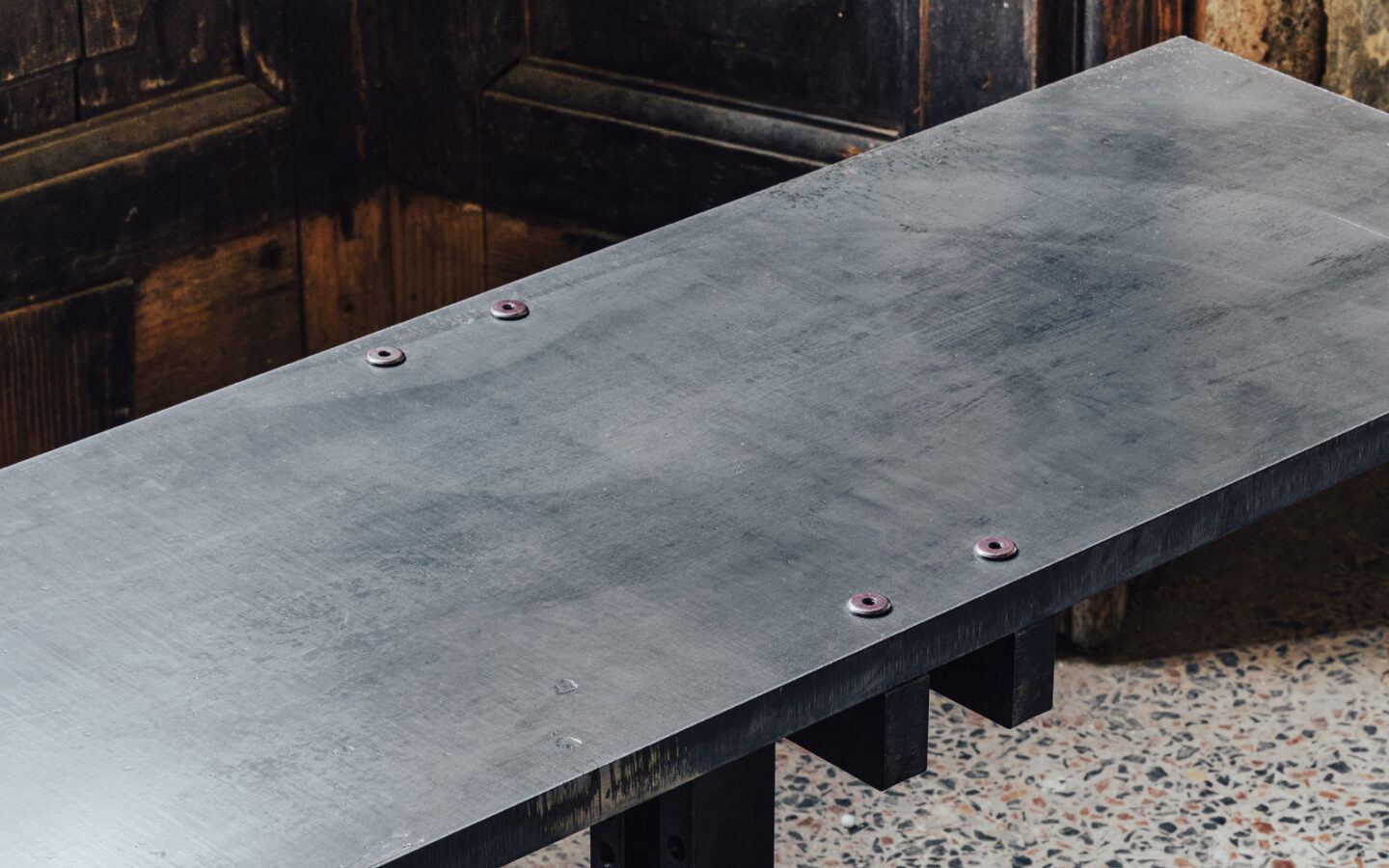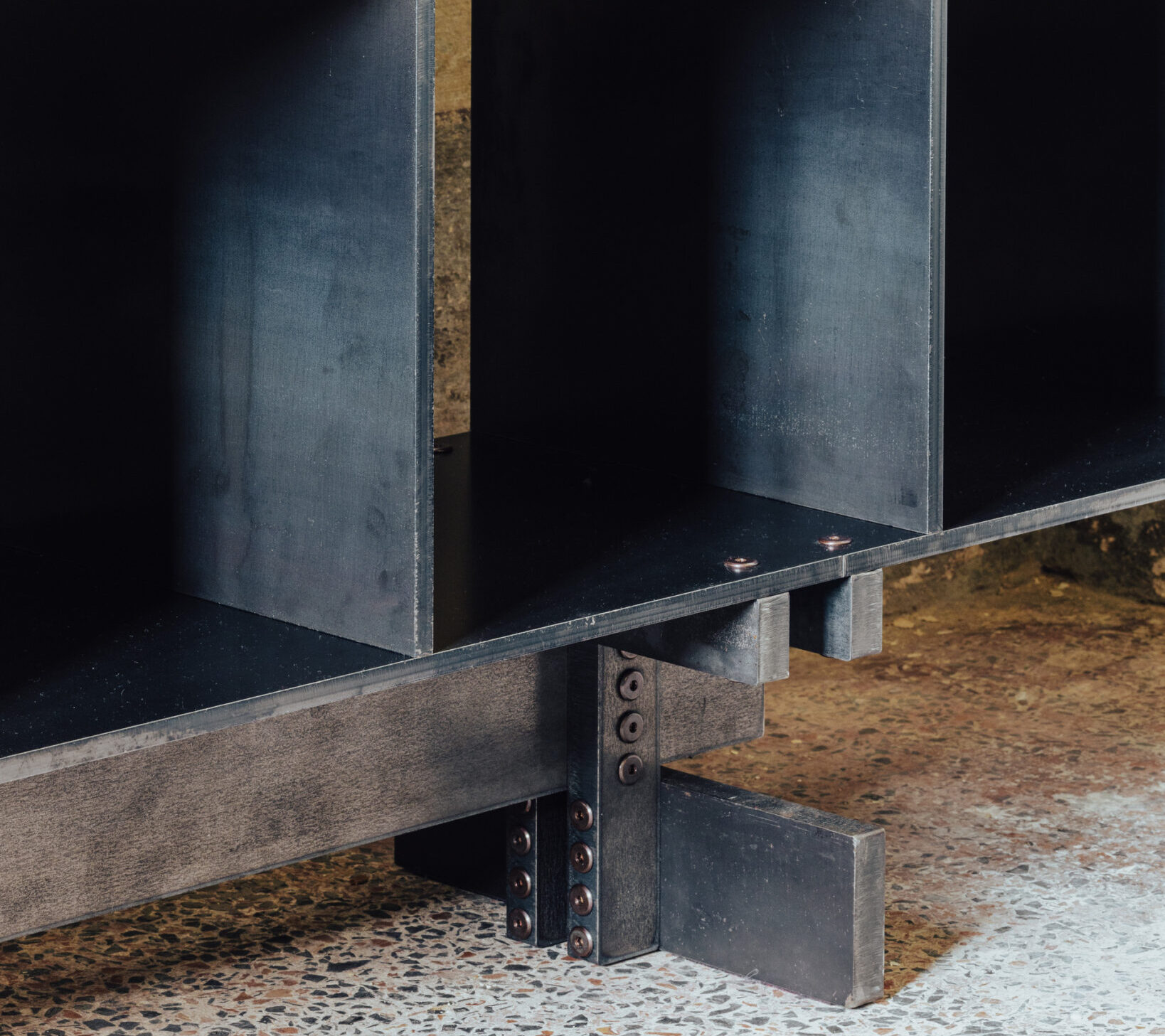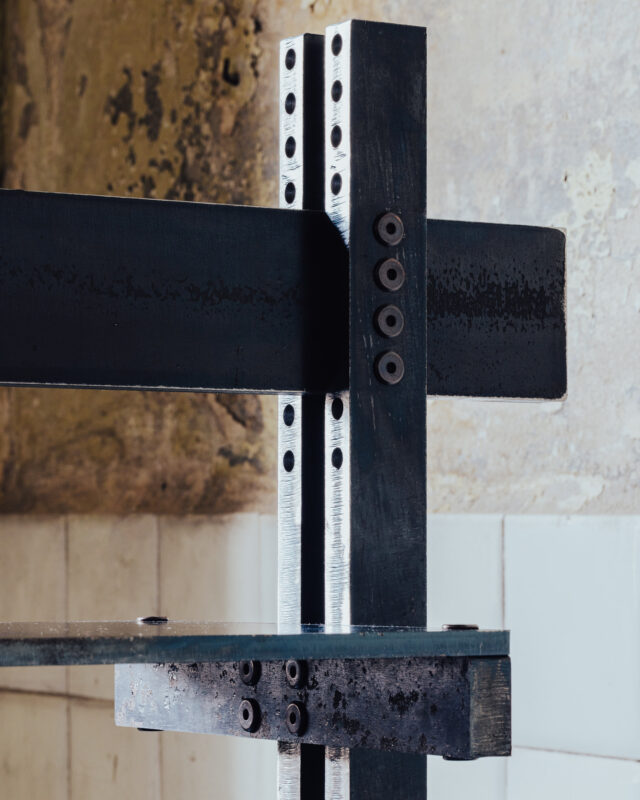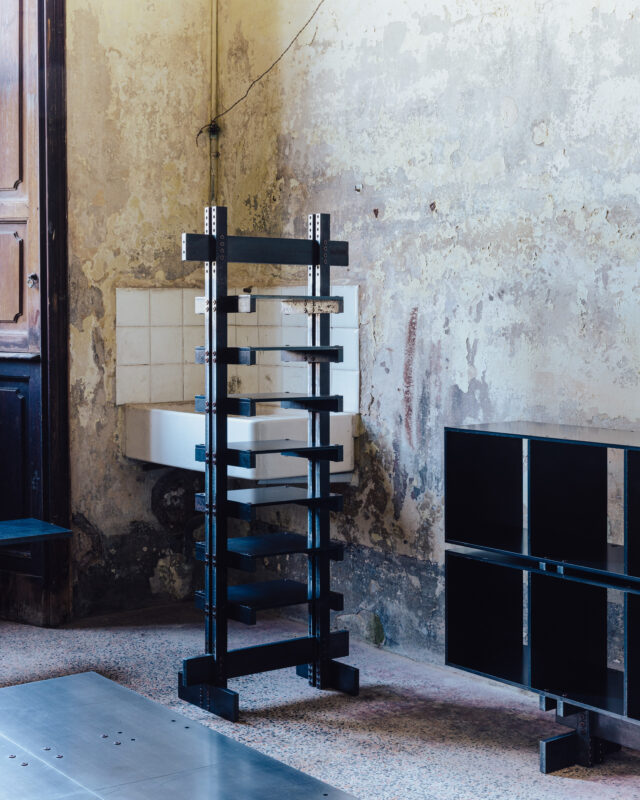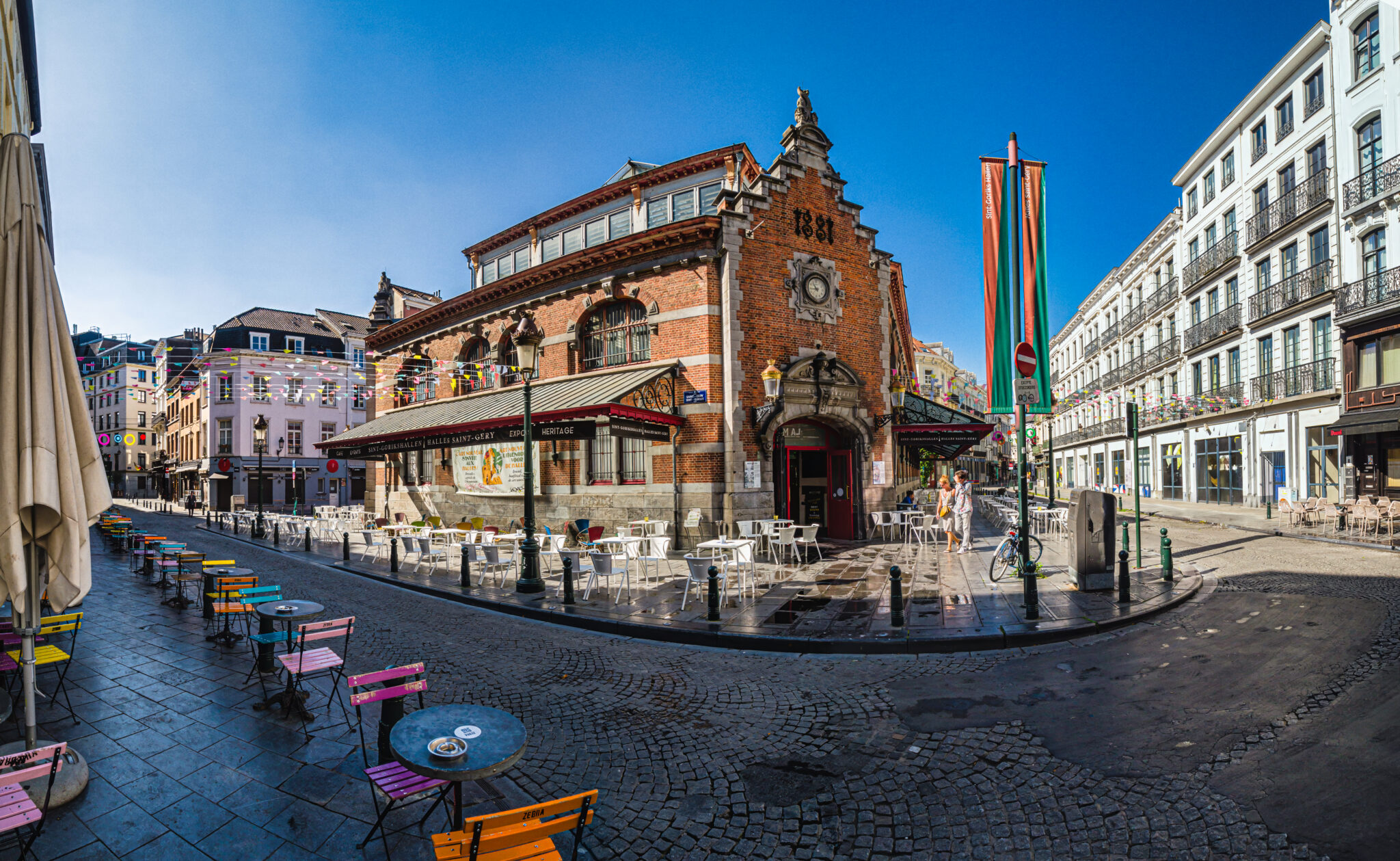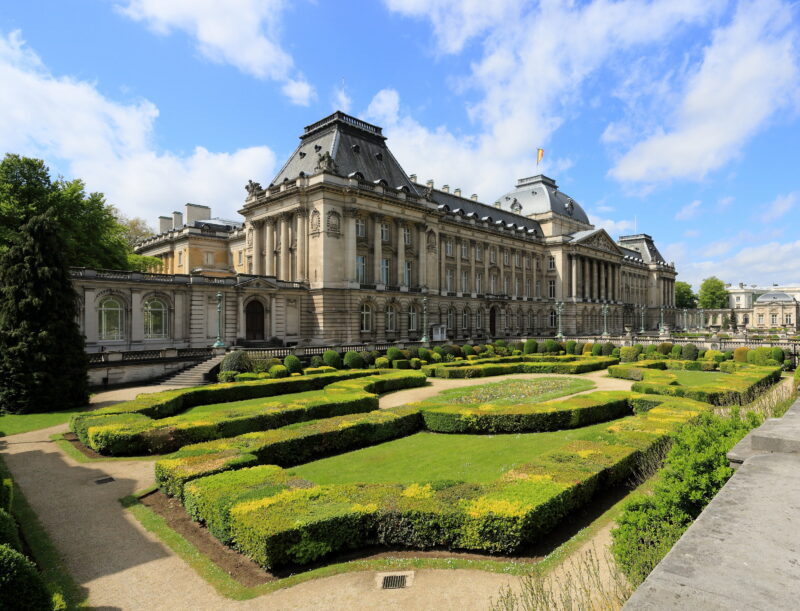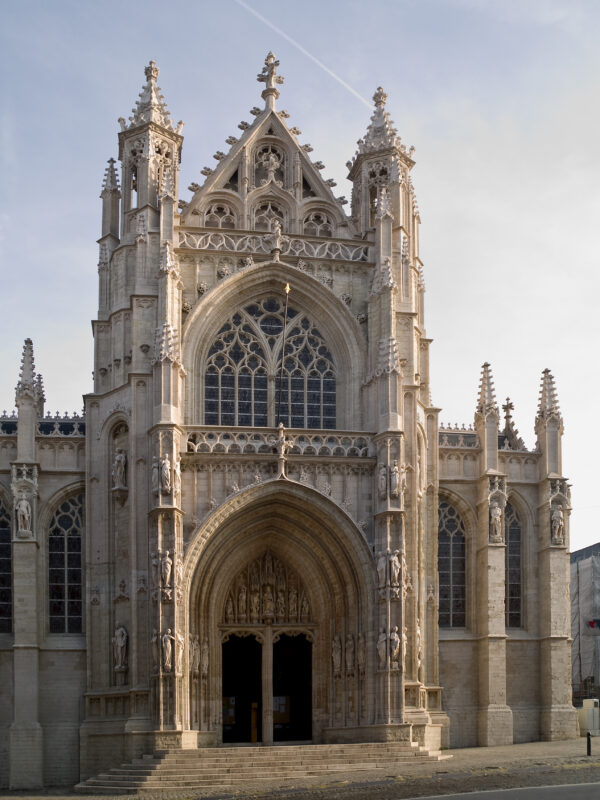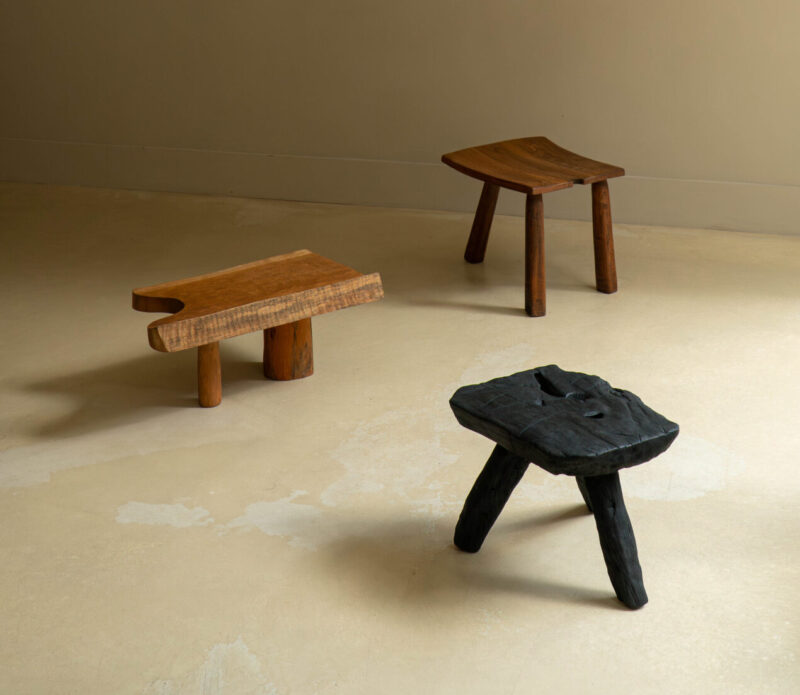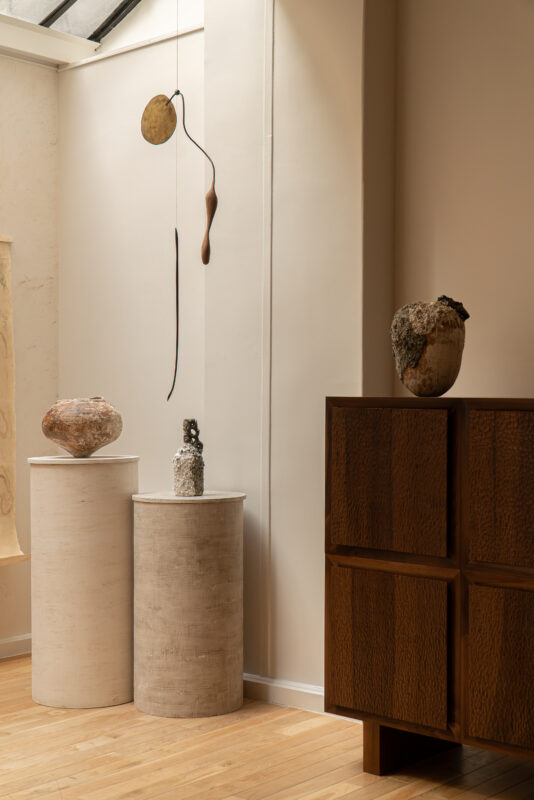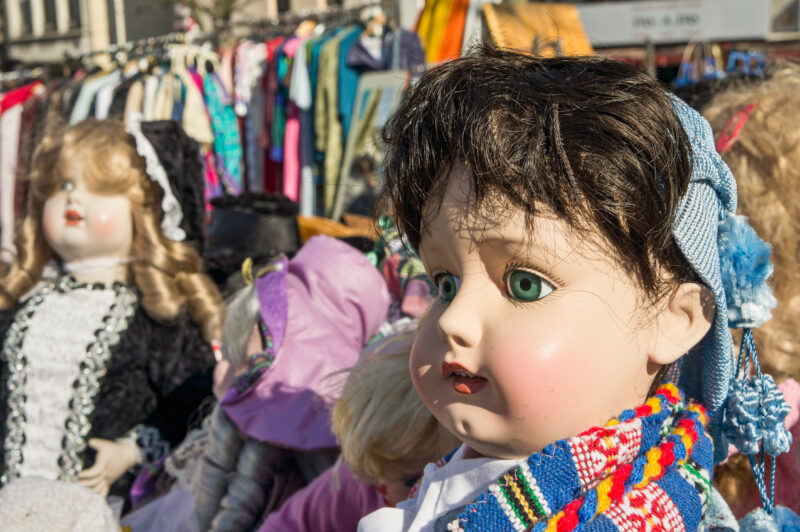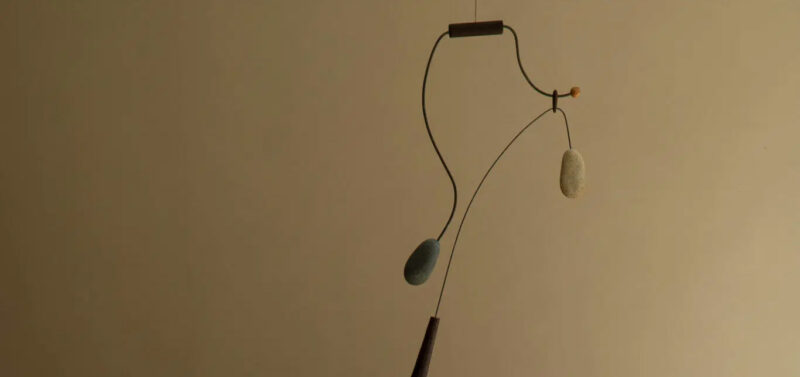Structure, space, proportion, material—Grou Serra returns to these four with monastic focus. In his hands, rough concrete becomes luminous, steel becomes gesture. His process is quiet and methodical: sketches distill into scale, mass is pared down to essence. Nothing is rushed. There’s no noise here—just elemental architecture that unfolds like a slow conversation.
© Courtesy of the artist
Which place do you currently call home and where do you work on your projects?
Currently I’m based in Brussels and have for quite a while—for almost ten years now. It’s an amazing city full of raw energy and very little pretentiousness. The people are always approachable and more interested in what you do and who you are, rather then where you come from, it’s rare these days.
Mostly I work on my projects at our studio. I’m an architect mostly and we opened our office with Alistair Vaicle two years ago. We try to blend architecture, design, research & experimentation in a single place. It also serves as a small gallery where we exhibit works from friends and colleagues. We’re quite happy with our method so far and hope to take it much further in the near future.
Where is your studio located & how does it look?
Our architecture studio is located in Brussels, in the heart of the Saint-Gilles neighborhood. It very much looks like a normal small studio surrounded by ever changing artwork. Different work is done in different spaces, although most of it is done in our space. We have a small workshop under construction/furnishing that we will use for building our prototypes and furniture, and we also work with skilled craftsmen for our different pieces.
© Courtesy of the artist
Are there any projects that are personally important to you—whether recently completed or currently in progress?
The recently completed System 1 has been the focus of my attention for a while now, and its development very rewarding—it ties in nicely to the rest of my work and allowed me to further develop a certain methodology, which I am very attached to. I have some new wood furniture pieces in production right now and I am eager to finalize them.
One of the main architecture projects we are working on right now is a public project for an association who works with people who suffer from brain damage following an accident. It’s a very technical project, but also very structural—it is very rewarding to apply a certain architecture clarity and simplicity not only as a whim, but also a certain necessity. We will be able to talk about it some more in the near future.
Finally, we also have a couple of theoretical projects in the works—which we always like to do to stimulate our knowledge and develop research through the project. Mostly, we try and understand the current development of the city with specific questions regarding density and how we live today and how we will be forced to live in the future. The idea is not to “rethink” or “reinvent” anything, since we don’t believe this is necessary or even possible—but simply to apply existing knowledge to our inevitable future condition. We will also publish these in the near future.
© Courtesy of the artist
© Courtesy of the artist
Do you have a favorite place in your area where you like to relax and linger?
I’m in love with cities and find myself completely drawn to the chaotic urban quality of a big city. In Brussels the main areas where I feel at home are the Parvis de Saint-Gilles, the place Saint-Géry and the Bailli/Trinité neighborhood. There is this bustling life to them and a sort of organized mess that I find very appealing and inspiring.
© visit.brussels – Jean-Paul Remy – 2023
Are there any urgent political issues or problems in your region?
In the global sense of things, not really. An old teacher of mine used to say; people in Gaza have problems, we have issues. It doesn’t really mean we shouldn’t fight for a better life, but mostly to reconsider our privileged position frequently and take a step back from a lot of the current political discourse.
The main issue we are facing today is the one I believe we will never really fix; the growing gap in wealth and privilege between the different social classes. No matter what we do and how hard we fight, capital and ownership are concentrated in the hands of a smaller amount of people; and that is what we should strive to eliminate as much as possible. Everything else is a direct result of this incessant greed we witness every single day.
In your opinion, what has developed well in the last 5 years—and what has not?
Five years is a relatively short time to be able to accurately determine societal changes. I think since Covid, we collectively fell back into a sort of hyper-consumerism and individualism that seemed on the way out before. That’s a very visible development, but not in a good way. We’ve also witnessed the disappearance of a lot of independent shops, restaurants, bars, coffees that were replaced by brands or chains. This goes hand in hand with increased consumerism unfortunately.
©Martin Falbisoner creator QS:P170,Q30147473, Royal Palace in Brussels, CC BY-SA 3.0
© Bruxelles (Belgique) : Notre-Dame du Sablon, facade et portail, rue des Sablons
Do you know a hidden gem when it comes to local manufacturers—whether it’s arts and crafts, sustainable products or food?
To be completely honest, I don’t really believe in local manufacture in terms of sustainability today—so I don’t particularly seek out those places. If you sit down and think in terms of goods and food production, centralization and industrialization is much more effective and sustainable than local production. The actual transport itself is almost irrelevant in terms of total embedded energy—this is a difficult topic and the discourse is quite green washed and hard to navigate properly in an objective way.
A lot of the different solutions offered today are simply a way for the different producers and manufacturers to shift some of the work and logistics required to the final consumer, while capitalizing on it even more—so I am very critical of this aspect of local production. We should embrace logistical chains—the economy of scale is unbeatable no matter what we do, it’s mathematics.
In terms of craftsmanship I really appreciate the workshop of Camille Tan (Atelier Falaise) & Alexis Mazin in the city center —118 Rue des Tanneurs. It’s a treasure trove of amazing wood craftsmanship and artistic vision—highly recommended to anyone passing through.
© Atelier Falaise
© Atelier Falaise
Is there anything particularly innovative in your region? Also in comparison to other places you have already visited?
I believe Belgium—and Brussels specifically, has an immense pool of artists and creators that so far seems unparalleled anywhere else. Our politics—although they are changing, really foster this creativity and it is a real privilege to be able to take advantage of this generosity and develop my own artistic vision with little constraints and a lot of support. I really believe our government should keep doing it as the results will be incredible in a few years if we keep at it.
Do you have a secret restaurant tip that you would like to share with us?
There is this absolute gem of a restaurant in Saint-Gilles—Nuovo Rosso. Mario—the owner, really knows what he’s doing and the food is simply the best. Of course places are few, and a reservation is quite hard to get.
Is there a local shop whose products are only available in your region?
I would have to recommend the biggest local shop we have—the daily flea market in Place du Jeu de Balle. Like every flea market, you have to sift through a lot of questionable things before finding what you weren’t looking for; but it’s absolutely worth a visit even if just for its unconditional chaotic energy.
© visit.brussels – Jean-Paul Remy – 2009
What are your 3 favourite apps that you use very day and couldn’t live without?
I like to think there is no single app I couldn’t live without.
Do you have any favourite newspapers or online magazines? And how do you keep up to date with politics or social and cultural issues?
I try not to be too immersed in daily politics and social issues—it’s just relentlessly never ending. I do nonetheless subscribe to newspapers who regularly do investigative journalism as I believe this is something that should be funded and not left in the hands of advertising money—and therefore capital dictated news.
I also listen a lot to Radio Panik for its somewhat eclectic program and offbeat approach to broadcasting.
© visit.brussels – Jean-Paul Remy – 2023
Imagine you could be mayor for a year—what would you change?
I would ban cars from city centers, multi-home ownership and advertising in any shape or form. There would be riots on the streets, but I am convinced most of our issues would be resolved. Everything else would fall into place.
One last question: If you could choose another place to live—regardless of financial or time constrains—which one would you choose?
I would probably go back to Chicago where I lived for several years for my studies. Its an amazing city where I could definitely see myself live for a while.
